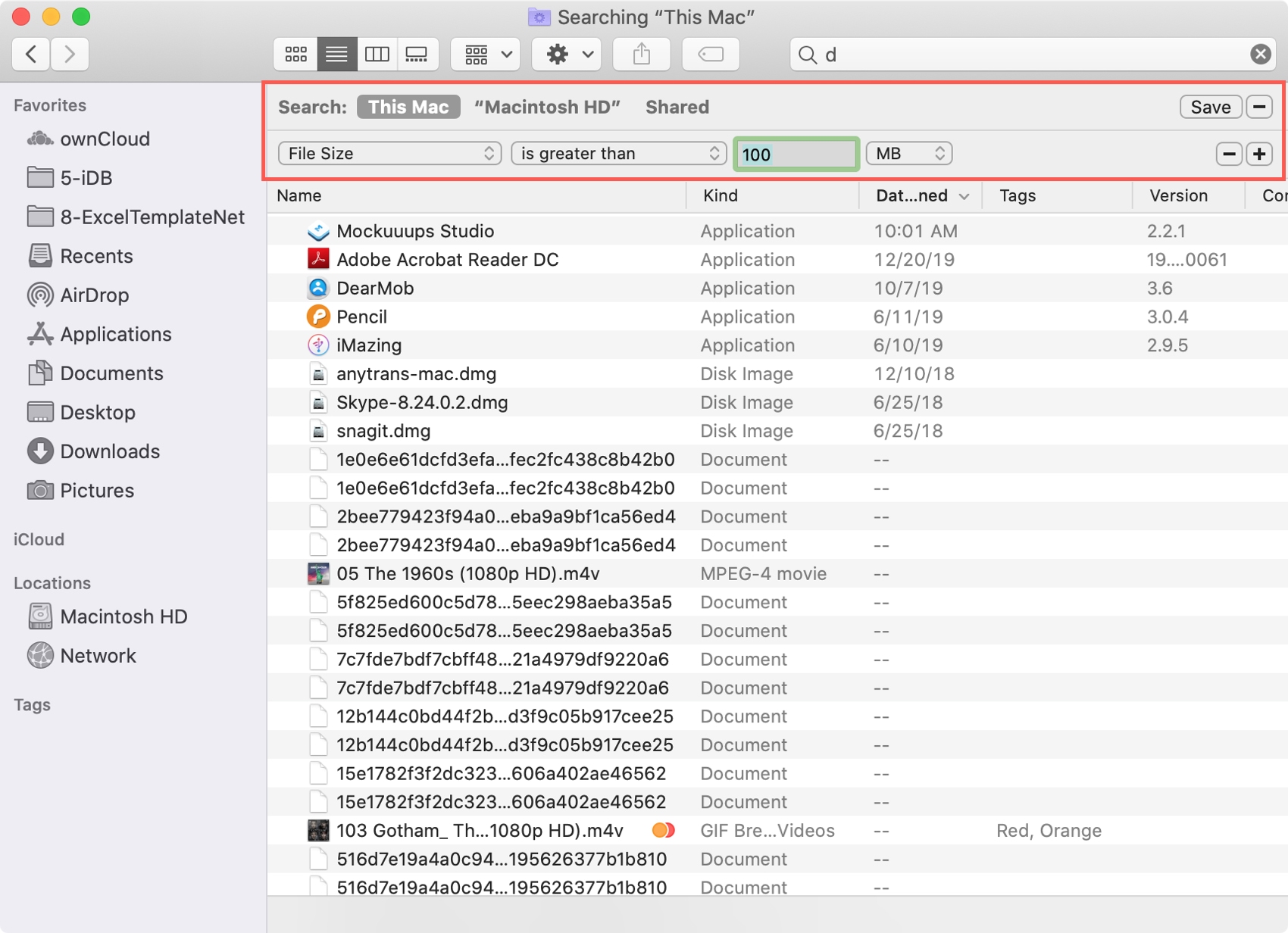
/how-to-make-a-file-smaller-on-mac-52109191-2dbcc23eb4ee43669071e351cd1784ef.jpg)
The Archive Utility automatically opens compressed files, including those in the ZIP, BZ.
HOW CAN I FIND LARGE FILES ON MAC ZIP FILE
This is free software: you are free to change and redistribute it. To open a compressed ZIP file on your Mac, simply double-click it. Stack Exchange network consists of 180 Q&A communities including Stack Overflow, the largest. I want to find the biggest files in root. License GPLv3+: GNU GPL version 3 or later. In these subdirectories, there are a bunch of files. I use the following binaries on my system: $ du -versionĬopyright (C) 2021 Free Software Foundation, Inc. You might want to use du's -B option too, to round up to the nearest G, for example.Īnother useful du argument might be -a to list files, not just directories. Binary prefixes can be used, too: KiB=K, MiB=M, and so on.īear in mind that sort just sorts on the numerical value, not the unit size. Units are K,M,G,T,P,E,Z,Y (powers of 1024) or KB,MB.

The SIZE argument is an integer and optional unit (example: 10K is 10*1024).

Select Recommendations from the list in the left of the window. Click on the Manage button to access the storage management options. You are now presented with a graphical view of how the storage on your disks is being used. t exclude entries smaller than SIZE if positive, or entries greater than SIZE if negative. Click on the Apple Menu in the upper left corner. Select the path that starts with /private/var/folders that contains. ( storeagent for 10.9 and below) Open the Inspector (press the 'i' button, or + i) Select the Open Files and Ports tab, and scroll to the bottom. Open Activity monitor, and select the storedownloadd process.
HOW CAN I FIND LARGE FILES ON MAC HOW TO
Note that du's -t 1G argument can take other size parameters too (from man du): Here's how to find it: Start a rather large app store download. R # reverse the sort, effectively putting the largest files and directories first n # compare according to string numerical value Inspired by this answer, I came up with the following to find directories of 1 GB or greater: du -ht 1G / 2>/dev/null | sort -nrīreakdown du -ht 1G / 2>/dev/null | sort -nrĭu -h # print sizes in human readable format (e.g., 1K 234M 2G)Ģ>/dev/null # redirect stderr (error) output to /dev/null, effectively ignoring it


 0 kommentar(er)
0 kommentar(er)
